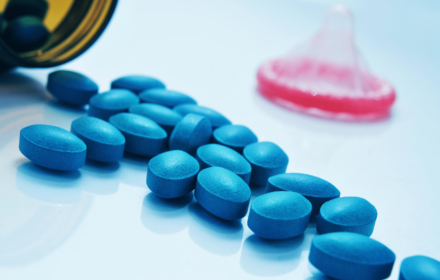A few months ago, I casually walked into a medical spa for a quick skin analysis. I figured we’d discuss whether peels or microdermabrasion would be best for my acne-prone skin. But when the aesthetician asked me about which medications I was on, I said none, out of habit. However, I casually mentioned my husband and I were starting intrauterine insemination (IUI) in the next month on our quest to get pregnant. And before I could even rest my head on the table, the consultation came to an abrupt end.
I was surprised to learn that even though I’m not pregnant yet, I needed to treat my skin like I am. That meant all of the medical-grade treatments and products I was looking forward to trying were off-limits.
Skin-care for pregnant women and those of us trying to conceive (TTC) can be a fickle mistress. Your hormones might be completely thrown out of orbit after you go off the pill, which can result in oily skin and breakouts. Unfortunately, the treatments you normally turn to might not be pregnancy safe.
Luckily, dermatologists say there are safe skin-care options to try throughout your pregnancy journey. Here’s a look at how to treat your skin when you’re in full on baby-making mode.
Hormone fluctuations from pregnancy or going off birth control can cause acne flareups just when your skin-care options become limited. Fun!
Going off birth control can be both an exciting and confusing time. Even though you’re excited to get that pink plus sign, it can take months—and for some women, even a year or longer, to get a positive pregnancy result. (Most couples—about 84 percent—get pregnant within a year of having regular unprotected sex, but one in eight experience infertility issues.)
If you’re usually on birth control and it helps stabilize your acne, suddenly not taking it can mess with your skin. “If you use birth control for acne, you are decreasing the effect of testosterone on the skin, which in turn helps make acne better,” explains Judith Hellman, M.D., a board-certified dermatologist in New York City. “When you stop, testosterone may increase oiliness leading to clogging, and hence new pimples.”
The good news is that your skin may stabilize after just three cycles off the pill, notes Kendra Segura, M.D., M.P.H., an ob/gyn in Southern California. However, if you’re trying to conceive, figuring out how to treat your skin during these months leaves you in a sort of gray area. Some medications and even common topicals aren’t safe in case you should get pregnant during this time.
The safest course of action for your skin is to act like you are pregnant from the get-go. “I tell my patients that I treat them as if they are pregnant from the time they are trying to conceive,” says Robin Evans, M.D., a board-certified dermatologist in Connecticut. “You may not know you are pregnant until you are often six or more weeks along depending on the regularity of your cycles.“
And pregnancy itself can lead to acne breakouts, too, so the fun just keeps going.
So what should you avoid if you are or could be pregnant?
It might be obvious, but your doctor is likely going to recommend discontinuing most oral acne prescriptions if you haven’t already. “A big no is Accutane, which is a common medication prescribed for cystic acne,” Dr. Segura says. “It contains a high dose of vitamin A, and excessive intake of vitamin A affects the developing embryo and can be teratogenic, or dangerous, for your developing embryo.”
During your preconception phase, Dr. Segura also recommends discontinuing tetracycline, an antibiotic commonly used for acne. It could eventually cross the placenta and affect your developing baby’s teeth and bones.
Topical retinoids—vitamin A derivatives—including over the counter retinol, prescription Retin-A, and the acne topical Differin, are strongly discouraged during pregnancy. The same goes for hydroquinone, which is found in brightening creams.
Often, it’s not entirely clear whether an ingredient can cause pregnancy or developmental complications, but without strong evidence to say something is completely safe, doctors usually advise on the side of caution.
There’s a long list of other skin-care ingredients, products, and medications that may or may not be safe for you during pregnancy, which is why Dr. Segura recommends setting up a preconception appointment with your doctor to discuss. “The preconception appointment is highly important, because there may be other medications a soon-to-be mother may be taking for other medical conditions that she may not be aware of that could be harmful to her growing baby,” she says.
Here are products that doctors say are are pregnancy and TTC safe.
It’s possible to keep your acne under control while you’re TTC and eventually pregnant. It just might take a bit of trial and error to figure out which products work best for your skin type. Plus, it’s probably going to be a bit of a learning curve for most of us to remember which ingredients are pregnancy-safe.
Some you’ll want to keep in mind are glycolic acid, salicylic acid, and benzoyl peroxide, which are generally considered safe. Research on glycolic acid has been limited to animals, but it’s usually considered pregnancy-safe because only a minimal amount is absorbed into the skin. Salicylic acid and benzoyl peroxide shouldn’t pose any risk to a developing baby, research shows, because so little is absorbed through the skin, although some doctors still warn against benzoyl peroxide if you don’t absolutely need it.
Here are five doctor-approved skin-care products you can use while pregnant or trying to conceive:















